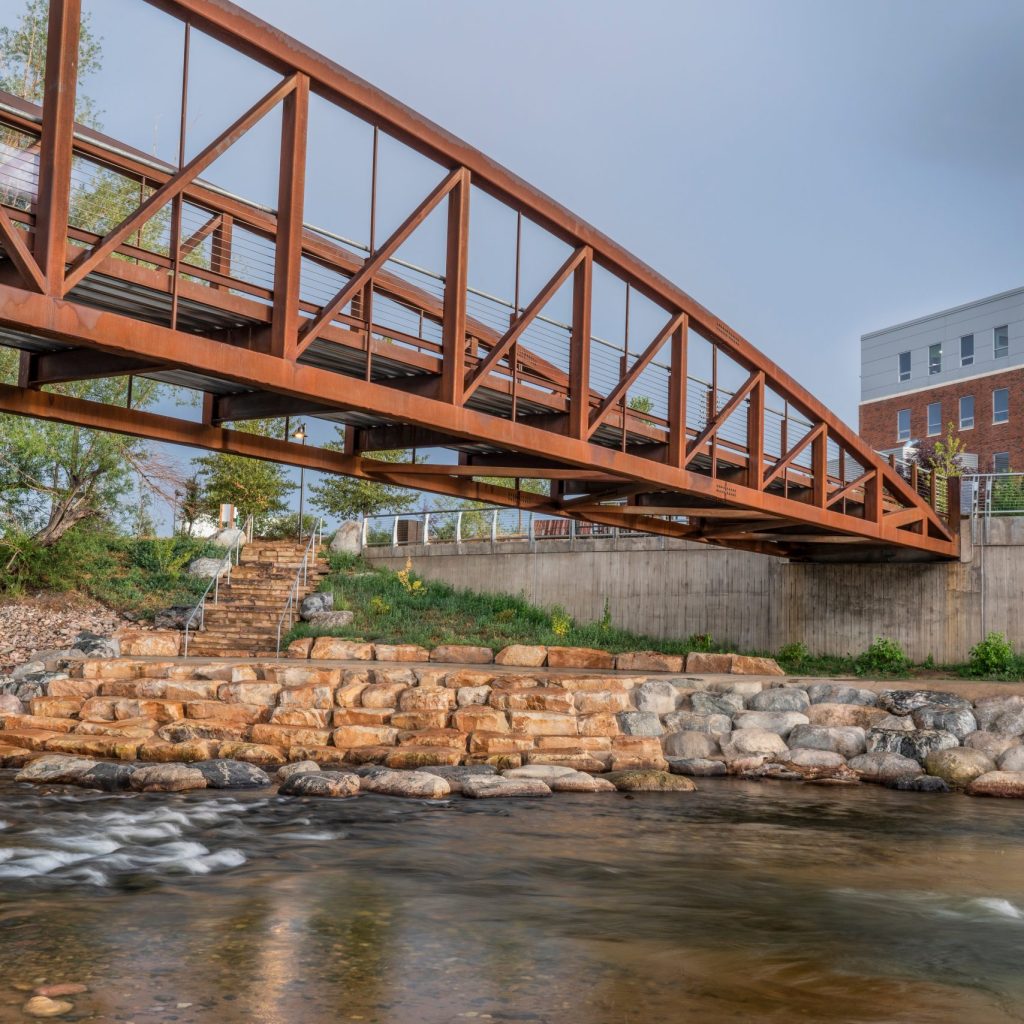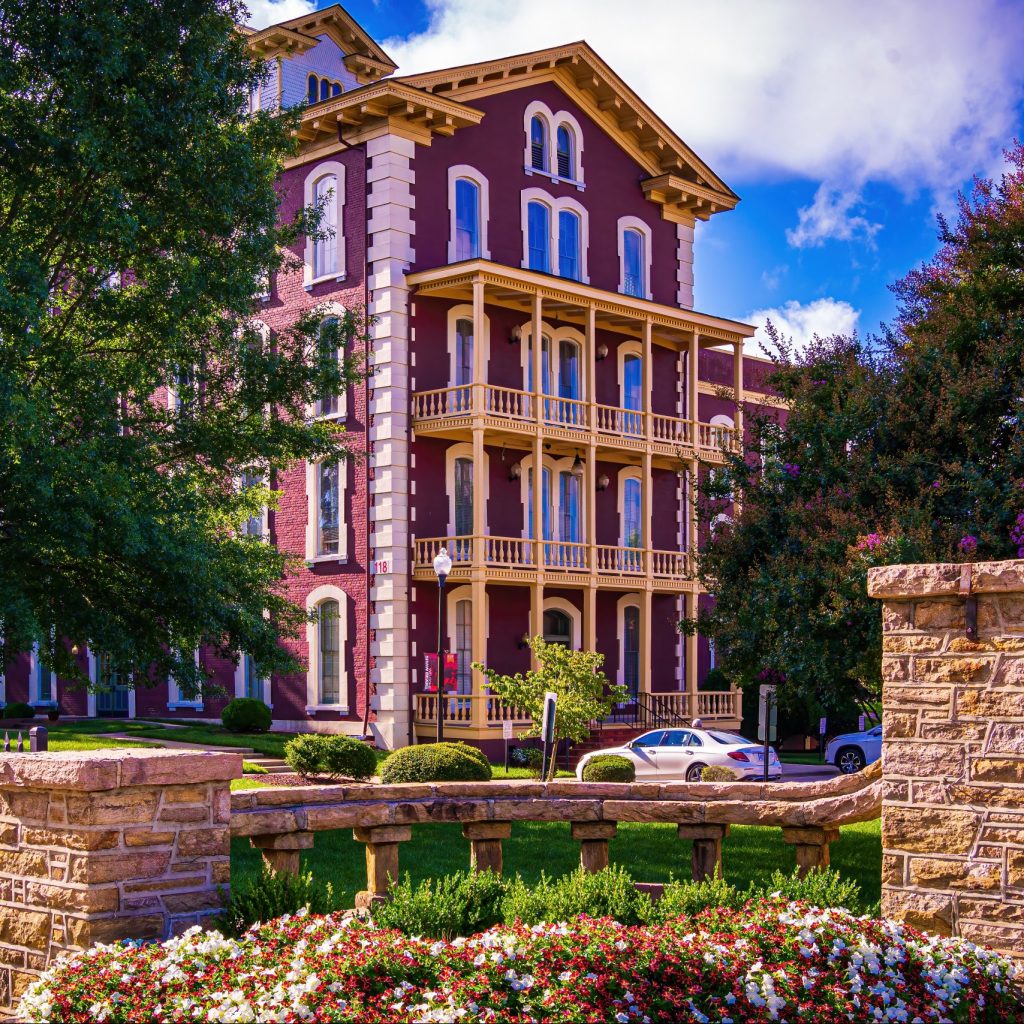“Bridgebuilding is not for the faint of heart,” writes Simon Greer in his essay, with co-author Marley Pierce, “Habits of Effective Bridge Builders.” “We have the opportunity to courageously choose it each day,” they go on to explain.
Indeed, this present moment does seem to call for a unique courage when engaging with others on topics of disagreement. In the United States, diversity and disagreement seem to characterize our national life. Whether we are talking about religious differences, ideological splits, or racial divisions, Americans live in an increasingly polarized world. But diversity, and even deep disagreements, are not the cause of so much anger.
Thankfully, a rising set of institutions are committing to providing students with the skills and encounters needed to be bridgebuilders. Interfaith America has awarded 19 institutions Bridging the Gap grants for the 2023-2024 school year. These colleges and universities are planning a wide range of curricular, co-curricular, and cross-campus programs, courses, and initiatives to promote bridgebuilding. The institutions themselves represent a cross-section of American life: large public universities, community-focused liberal arts colleges, deeply Christian institutions, and activist-oriented historically Black colleges and universities (HBCUs).
As they start to kick off their bridgebuilding work, here is a small sample of what campuses are working on this school year.
Baylor University – Deep in the heart of Texas, this Christian university founded by Baptist educators is taking bold steps to address divisions. From a spoken word poetry event with the theme of bridgebuilding to courses and trainings focused on bridgebuilding skills, Baylor is taking a multifaceted approach to embedding a welcoming skill set within their institution. In 2024, a new course debuts for Baylor undergraduates focused on the skills needed to create positive connections in our polarized world. Outside of the classroom, student leaders from a variety of student organizations will be trained in bridgebuilding skills and then funded to put those skills into projects across the university.
Colorado State University
Elizabeth Sink, a Communications faculty member at Colorado State University (CSU), sees engaging difference as a priority for her campus. “Now is the time to make significant investments in building the foundation for [bridgebuilding],” she told me. Sink plans on integrating the Bridging the Gap curriculum into an existing multifaith course and also creating an entirely new, honors-level course focused on bridgebuilding. Paired with these curricular offerings, CSU is training two student interns on bridgebuilding skills. These students will then train other CSU Rams (also known as their student peers) on engaging across difference, thus expanding their impact through the student body.

Principia College – Tucked into a curve of the Mississippi River in southern Illinois, Principia College was founded on the principles of Christian Science and offers a liberal arts education to a diversifying student body. Religious Studies professor Heather Martin is organizing a 4-day retreat for Principia student leaders. The retreat’s focus is on cultivating the next generation of bridgebuilders for Principia, the surrounding area, and for international students. Principia has one of the highest percentages of international students among U.S. colleges and universities. As Professor Martin states: “We need a framework [like BTG] to help students navigate conversations as their authentic selves … and we need to empower people to realize they do not have to erase differences to have a respectful, and productive, dialogue.”
Shaw University
An HBCU in Raleigh, North Carolina, Shaw University has a long tradition of student activism. The Student Non-Violent Coordinating Committee (SNCC) was founded here in 1960 and went on to become one of the most influential civil rights groups in U.S. history. In the current day, faculty at Shaw have started to re-shape their courses to include bridgebuilding skills. The foundational course, Introduction to Religion, now explicitly focuses on bridgebuilding development and seeks to cultivate student leaders who can, in turn, recruit and train other students to be future bridgebuilders.

Carr Harkrader is a Program Consultant at Interfaith America.
Bridging the Gap Skills Curriculum
Check out our multipart curriculum focusing on bridgebuilding skills and applications. It’s designed for educators to use with students in classrooms and groups across campus.




